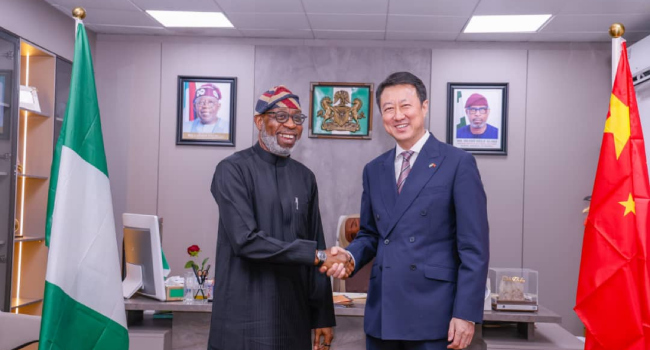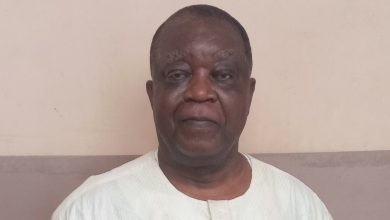FG, China mulling electric vehicle factories in Nigeria, says Alake

The federal government and China have deepened ties to establish electric vehicle manufacturing companies.
According to statement by Segun Tomori, the special assistant on media to Dele Alake, the minister of solid minerals development, the collaboration is aimed at unlocking the potential of Nigeria’s solid minerals sector through the establishment of electric vehicle factories in the country.
Tomori said this was part of the discussion when Yu Dunhai, the Chinese Ambassador to Nigeria, paid a courtesy visit to the ministry.
The minister’s aide quoted Alake to have emphasised the importance of closer ties between both nations in advancing Nigeria’s industrial growth.
The minister said that Nigeria is open for business to serious investors, stressing that investments in the nation’s mining industry are now focused on local value addition.
He urged the ambassador to encourage Chinese investors to commit to full-cycle investments, from extraction to processing, within Nigeria.
He said that Nigeria is a large market and has the potential to reduce reliance on fossil fuels through electric vehicle production.
“For years, our minerals have been exported raw to fuel foreign industrialisation. That must change,” the minister.
“We now prioritise local processing to drive Nigeria’s development. For instance, with the abundance of lithium, we want to see local manufacturing of electric vehicles and batteries.”
Alake highlighted the effects of the mining marshals established to combat illegal mining, stressing that the outfit has sent the right signal in the sector, raised awareness about the menace and has consequently improved compliance with regulations by both local and foreign operators.
“We have taken action against illegal operators, including some Chinese nationals. While isolated, such incidents undermine the good work of many compliant Chinese firms. We need your cooperation in ensuring that such culprits are brought to justice,” the minister asserted.
Alake stated that Nigeria appreciates its long-standing relations with China, acknowledging that most Chinese firms operate within legal and regulatory frameworks.
Responding, Dunhai expressed support for Nigeria’s local value-addition policy, pointing out that one of President Xi Jinping’s key priorities is promoting African industrialisation.
“Plans are underway to establish electric vehicle factories and other manufacturing ventures in Nigeria.
“Chinese companies are already deeply involved in Nigeria’s mining sector, from exploration to processing.
“We aim to deepen this collaboration, especially in line with President Tinubu’s eight priority areas, notably economic diversification through solid minerals,” he added.
He expressed concern over the actions of a few operators tarnishing China’s image, referencing a recent viral video involving a Chinese national allegedly bribing local security agents.
The ambassador emphasised that Chinese authorities have zero tolerance for illegal mining, noting that they are willing to cooperate with the Nigerian government to bring suspected offenders to justice.
He said that the embassy and the Chinese government have consistently warned Chinese companies operating in Nigeria to follow rules and regulations, implement corporate social responsibility, and adhere to environmental and safety standards.
He stated that China has always placed Nigeria in a very pivotal position in its foreign policy.
Dunhai noted that Presidents Bola Tinubu and Xi Jinping have agreed to elevate bilateral relations between the two countries to a comprehensive strategic partnership, creating new opportunities for cooperation during Nigerian leader’s state visit to China.





